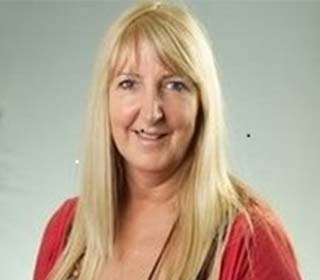Michelle Batstone
PhD student - Mathematical understanding of early number concepts
01752 636700
mbatstone@marjon.ac.uk

Role Summary
Michelle is a PhD student with an interest in children’s mathematical understanding of early number concepts.
As a Reception Teacher and a passionate mathematics specialist of some 16 years, she has observed an increasing number of children joining school with speech and language difficulties, and therefore a limited range of mathematical vocabulary; particularly children from areas of social disadvantage. She had also observed a decline in children’s fine motor skills on-entry, which naturally hinders a child’s ability to hold a pencil and represent their internal mental methods of mathematical mark-making on paper. There still exists a notion that if a child is not able to communicate their reasoning of a concept through talk, or in some written form (symbolic or abstract), then they cannot demonstrate mathematical understanding.
Qualifications
- MA Education (Mathematics), University of Exeter
- PG Primary Mathematics Specialist Teacher (MaST), Open University
- PGCE (Mathematics Specialism), University of St. Mark and St. John
- FCCA - Fellow Chartered Certified Accountant
- Accredited NCETM PD Lead Mathematics Mastery Specialist
Teaching
Michelle is a part time lecturer at the University of St Mark and St John. She lecctures for:
- BEd Primary - Mathematics and Early Years
- PGCE Primary - Mathematics and Computing
- PGCE Secondary - Broader Curriculum and Mathematics
Michelle is also a part time reception teacher at Halwill Primary School.
Research
Her PhD research aims to explore whether gestures, actions and utterances can provide evidence that development in mathematical understanding has taken place by observing children aged between 4 and 5 years engaging with an embodied application software program. Her study has the potential to enhance a change of teacher assessment strategies of young children that currently rely heavily on speech and the written register.
Project title: Can the gestures, actions and utterances of children aged between four and five be used as evidence that development in mathematical understanding of early number concepts has taken place?
- Start date: October 2020
- Supervisors: Professor Ian Luke, Dr Hazel Bending, Dr Katheryn Edwards and Dr Taro Fujita (Exeter University)
Previous research projects
NCETM Funded National Research Project Joint Work Group Lead – Developing working partnerships with ITT providers 2020/21
Using Lesson Study to develop Curriculum Coherence in Mathematics 2019/20
NCETM Funded Teacher Research Groups Mastery Specialist Lead: collaborative professional development in action 2018/20
NCETM Funded Research Project Work Group Lead – Improving quality of curriculum resources and activities (especially to support mastery teaching); Improving quality of and access to mathematics enrichment experiences ‘Maths at Work’ 2015/16
NCETM Funded Research Project Work Group Lead- Developing pedagogical knowledge of teachers of mathematics (especially understanding of mastery pedagogy and Shanghai & Singapore pedagogy) ‘Fractions’ 2015/16
NCETM Funded Research Project Work Group Lead- Developing pedagogical knowledge of teachers of mathematics ‘Algebraic Thinking; mathematical thinking through which algebraic ideas and contexts can be developed 2014/15
NCETM Funded Research Project - Mathematics Knowledge Network ; ‘An open approach’ (Exploring rich mathematical tasks) 2009/10
Publications
Batstone, M .(2019). Riding a bike: An analogy for understanding variation. Association of Teachers of Mathematics (266)
Batstone, M .(2015). Enabling Environments - Yes, Reception children can think algebraically! ATM National Conference
Other Interests
I have a passion for skiing and adore walking my dogs on Dartmoor, close to where I live, and the local beaches here in the West Country.


